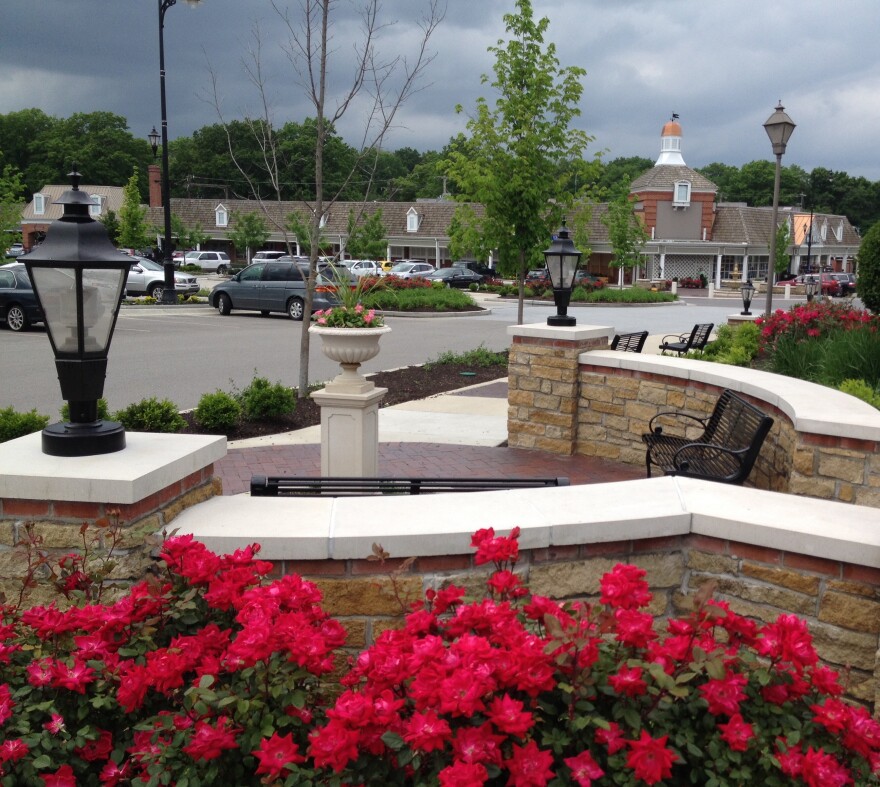Whenever you make a purchase at the Ward Parkway Center, say a pair of shoes or a dress, you pay the customary 8.35 percent Kansas City sales tax on every dollar you spend.
You also might enjoy the new renovations and upgrades that have made the 50-year-old shopping center a brighter, more attractive place. Take a little pride of ownership; after all, you helped pay for it.
On top of the regular sales tax you were just charged, another penny has been added bringing the total to 9.35 cents for every dollar spent. That extra cent goes to the Ward Parkway Community Improvement District, the entity created to help pay for all those improvements.
Since the first community improvement district, or CID, was established in Kansas City, Missouri, in 2002 at the former Bannister Mall property, the number has multiplied dramatically.
There are now 45 CIDs in the city alone and dozens more in the suburbs on both sides of the state line. They help fund everything from helping keep downtown Kansas City a cleaner and safer place, to building new mixed-use suburban developments like Prairiefire in Overland Park.
While much attention often is focused on how the city uses development tools, the more-costly CIDs are found in the suburbs. Kansas allows CIDs to collect up to 2 cents more in sales taxes while the cap in Missouri is 1 cent.

The highest sales tax collected in the metro area, including the 2-cent CID surcharge, is the Olathe Conference Center off K-10 and Ridgeview Road. An 11.225 percent sales tax is collected there.
The base Olathe sales tax is 9.225 percent.
Several Kansas CIDs have combined sales taxes hitting 10.35 percent including Prairiefire, Corbin Park, Mission Crossing, 39th and Rainbow and the downtown hotel in Kansas City, Kan.
The base Overland Park sales tax is 8.85 percent, and the base Kansas City, Kan. sales tax is 9.125 percent.
On the Missouri side, the most expensive CID when it comes to combined sales taxes is the 210 Highway CID, which includes the Ameristar Casino, and Liberty Commons; both charge 10.1 percent. The majority of CIDs in Kansas City, Missouri, come in at 9.35 percent.
The base Liberty sales tax is 8.1 percent; the base Kansas City tax in Clay County, where the 210 Highway CID is located, is 8.1 percent.
While they drain a lot of change from consumers’ pockets, CIDS have largely escaped the controversy associated with other economic development tools such as tax-increment financing and property tax abatements.
Many people aren’t aware of that extra penny being tacked on to their purchase, and if they are, it’s considered a volunteer tax.
“The philosophy is you’re choosing to shop there,” said Doug Stone, the lawyer who helped set up the Ward Parkway CID. “Nobody makes you go to Ward Parkway. If you’re concerned about the extra cent, you could shop elsewhere.”
Property fees
There are generally two kinds of Community Improvement Districts.

In the case of an established area, like downtown Kansas City or the midtown stretch of Main Street, multiple property owners agree to pay an additional surcharge to their property tax to help fund better security and maintenance services.
To establish the CID, more than 50 percent of the individual property owners must agree, and furthermore, those controlling more than 50 percent of the properties by value must agree.
That’s how Main Street CID operated by MainCor was established in 2007. The CID provides additional maintenance and security services for a stretch of Main running roughly from the edge of Penn Valley Park to the edge of the Country Club Plaza.
Diane Burnette, executive director of MainCor, said the CID does not collect a sales tax surcharge and relies solely on the fee assessed to property owners. Those fees raise about $600,000 annually.
She credits the CID with turning around the atmosphere along Main.
“We’ve made a lot of strides,” she said. “A lot of people have forgotten what it’s like. It was gray and dismal, not a place you ran or walked your dog. I think we’ve come a long way.”
Reviving aging properties
The other typical CIDs are those established by developers to either help revive an older retail property, such as Ward Parkway, or help build a new project like Prairiefire or Corbin Park.
They generally involve one property owner and the revenues come from sales-tax surcharges.
Owen Buckley, the president of Lane4 Property Group, has used CIDs to help revive older shopping centers including the Prairie Village and Corinth in Prairie Village; Red Bridge in Kansas City; Santa Fe in Olathe; and Cedar Tree in Belton.
In the case of the Cedar Tree property, the CID will help pay to make it more attractive to better tenants.
“We told the city it’s not pretty, but it’s a good location in a growing community,” Buckley said. “I asked if you want a prettier center because we thought it would get better quality tenants over the long term.”
Buckley also believes CIDs have skirted the controversies affecting other incentive tools because they don’t divert new tax revenues from schools, libraries and other taxing jurisdictions.
The projects pay the full new values after improvements in property taxes. It’s the consumer who pays.
“You as a consumer participate by buying a hammer,” Buckley said. “The schools get the full value of the improved project. That’s why CIDs aren’t nearly as controversial.”
Kevin Collison is a free-lance contributor to KCUR 89.3. You can reach him on Twitter @kckansascity.



